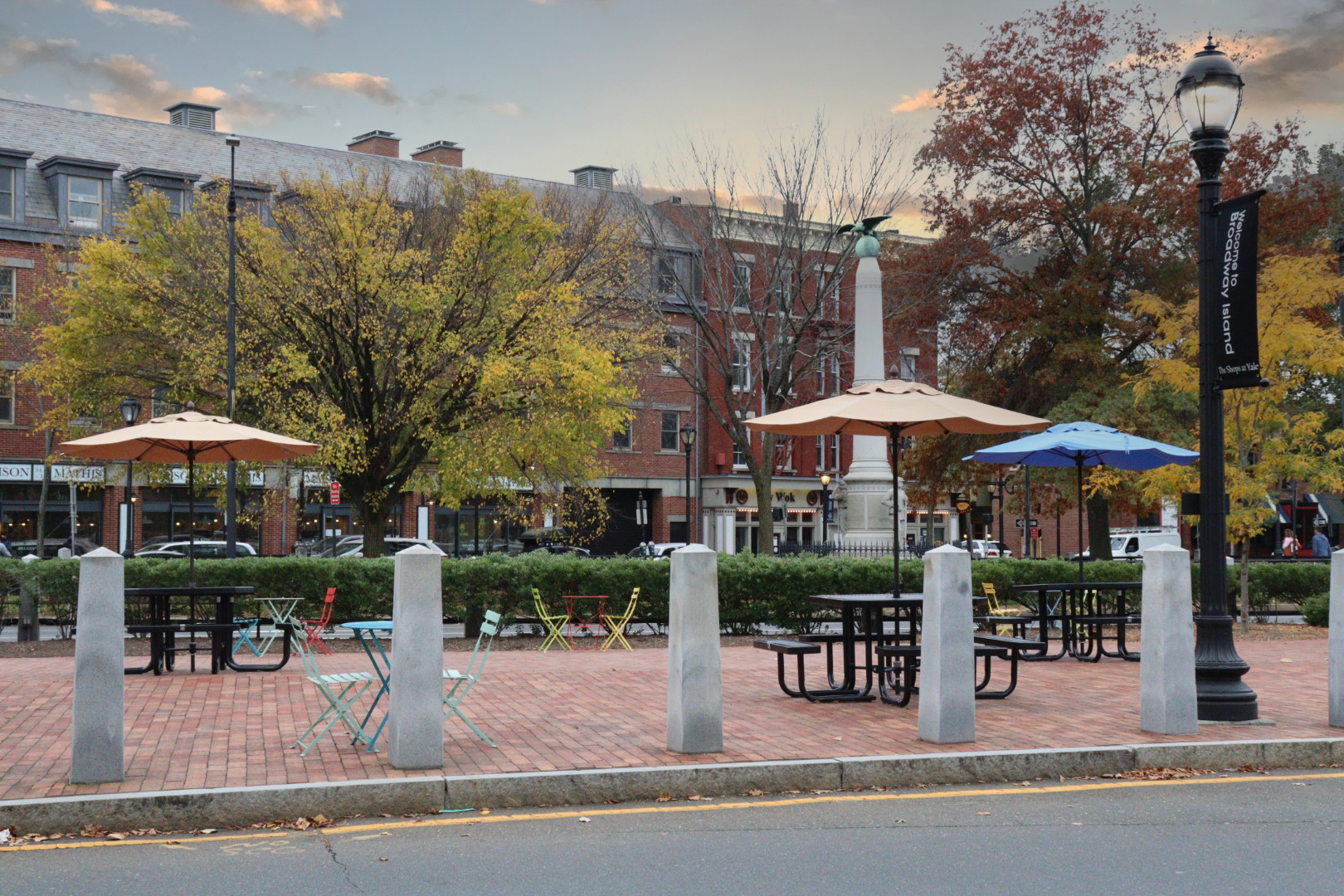
Hedy Tung, Staff Photographer
During a Tuesday webinar, the city of New Haven announced that it will formally roll out an initiative to increase outdoor dining on April 1.
New Haven Eats Outdoors 2021 brings together multiple city departments and divisions — including the Economic Development Administration, City Plan and Livable City Initiative — to support city restaurants in the coming months. The initiative plans to do so through a streamlined permitting process and increased promotion of business grant programs, among other services, and it will last until October. City leaders hope it will help restaurants bolster their outdoor dining offerings.
“We want those who want to pursue [outdoor dining] and have the opportunity to pursue it to feel comfortable doing so,” Steve Fontana, New Haven deputy director of economic development, told the News. “I think it’s imperative, as we’re coming out of COVID-19, that restaurants try to pursue other ways of sustaining themselves, and this is one way.”
The Eats Outdoors program is the latest in a series of ongoing city efforts to support restaurants during the pandemic. Last summer, the city held a similar Eats Outdoors campaign in an effort to increase outdoor dining after Gov. Ned Lamont reopened Connecticut indoor and outdoor dining in June. The city introduced Eat New Haven last December to stir interest in restaurants and rolled out New Haven To Go! last month to encourage people to order takeout.
City leaders have received outdoor dining permit applications from restaurants since the start of the pandemic. The number of applications for outdoor dining permits in 2020 increased more than twofold from 2019. Previously, the vast majority of applicant businesses were concentrated downtown.
According to city law, restaurants must obtain permits annually if they wish to seat customers in parking lots, sidewalks, and parking spaces. Since last year’s iteration of Eats Outdoors, the city has streamlined and expedited its permit application process by digitizing the application, according to Fontana.
Robert Ellis, the deputy economic development administrator for the city of New Haven, said at the webinar that the city has fixed commonly raised difficulties in the permitting process. Over the past year, the city has been revamping the application and review process and working to improve response time for the applications.
“The goal is to support outdoor dining and make it easier for people who [obtained permits] last year and for people who didn’t do it last year to explore it as well,” Fontana said.
The Eats Outdoors program will also look to expand public awareness of several ongoing business grant programs organized by the city.
New Haven’s Leasehold Improvement Program is one such program. According to Jeffrey Moreno, a Livable City Initiative project manager, the program is aimed at small business owners looking to create interior cosmetic improvements.
Moreno encouraged restaurant owners to “get in on this hot program,” which he called “one of the hottest in the city.”
The program offers reimbursements of up to 50 percent of the costs of interior business upgrades and covers costs as high as $10,000. It covers fresh paint, floor repairs and shelving upgrades, among other expenses.
Also available as part of the initiative is the Facade Improvement Grant Program, which began in 2001 and can be used to pay for upgrades to business storefronts. This includes expenses for lighting fixtures, doors and signage. Applicants can apply for up to $30,000 in grants.
With the Eats Outdoors program, city officials have added a new type of facade improvement grant that offers more money to businesses up front by reimbursing 100 percent of the first quarter of upgrade costs.
Clay Williams, the small business development officer for the New Haven Economic Development Administration, said during the webinar that the Facade Improvement Grant Program gives restaurateurs “a little bit more money upfront to do improvements to help have customers come and … sit outside.”
As part of the initiative, the city also hired Karin Patriquin of Patriquin Architects to offer design assistance to restaurant owners seeking to improve the aesthetics of their stores. Fontana told the News that businesses will incur no additional costs for Patriquin’s consultations.
During the webinar, Mike Piscitelli, the city’s economic development administrator, emphasized the challenges restaurants have faced in the past year, such as strict reopening rules and lost business due to the decrease in office work.
“We recognize we still have a long way to go,” Piscitelli said. “We’re going to be here with [the restaurateurs], but so much more than that … we’re going to be putting a real focus on supporting small businesses holistically, getting out there and improving our great places around the city.”
The national American Rescue Plan Act of 2021, signed into law on March 11, includes $28.6 billion for a new grant program for restaurants and bars to meet payroll and other expenses.
Dominique Castanheira | dominique.castanheira@yale.edu









